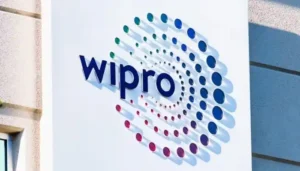Wipro has stated that the recent hike in H-1B visa fees will not significantly affect its operations in the United States, as nearly 80% of its workforce in the region comprises local hires.
The announcement comes amid growing concerns across the Indian IT sector about rising visa costs and their potential impact on margins and talent mobility.
H-1B Visa Fee Hike: Background and Industry Response
Effective September 21, 2025, the United States government implemented a steep increase in H-1B visa application fees, raising the cost to $100,000 per new application.
This marks a dramatic jump from the previous range of $4,000 to $5,000, and is part of broader immigration reforms aimed at encouraging domestic hiring and reducing dependency on foreign labor.
The fee hike has triggered concern among Indian IT firms, which have traditionally relied on H-1B visas to deploy skilled professionals to client sites in the US.
Companies like TCS, Infosys, and HCL Technologies are reassessing their hiring strategies and cost structures in response to the new rule.
Wipro Workforce Strategy in the US
In contrast to some of its peers, Wipro has downplayed the impact of the fee hike.
According to company officials, 80% of Wipro’s US workforce are local employees, significantly reducing its reliance on H-1B visa holders.
This localization strategy has been in place for several years and is part of Wipro’s broader effort to align with client expectations and regulatory trends.
The company emphasized that its hiring model in the US focuses on building talent pipelines through local universities, partnerships, and community outreach.
This approach not only mitigates visa-related risks but also strengthens Wipro’s brand as a domestic employer in key markets.
Financial Implications and Margin Outlook for Wipro
The visa fee hike introduces additional costs for companies that still rely heavily on H-1B talent.
Wipro’s localized workforce model helps shield it from immediate financial pressure.
Analysts expect Wipro’s Q2 FY26 margins to remain stable. This outlook is supported by large deal wins and operational efficiencies in Europe and North America.
In its Q2 FY26 preview, Wipro acknowledged upfront costs linked to new deals.
However, it reiterated that visa-related expenses would not have a material impact on its profitability.
The company is expected to release its full earnings report on October 16, 2025.
Sector-Wide Shifts Toward Localization
Wipro’s stance reflects a broader trend in the Indian IT industry. Companies are increasingly investing in local hiring across the US and Europe.
TCS and HCL Technologies have also announced plans to reduce dependence on H-1B visas and expand domestic recruitment.
Tightening immigration norms, geopolitical sensitivities, and client preferences for onshore delivery are driving this shift.
As visa costs rise and regulatory scrutiny intensifies, localization is becoming a strategic imperative for global IT service providers.
Note: We are also on WhatsApp, LinkedIn, and YouTube to get the latest news updates. Subscribe to our Channels. WhatsApp– Click Here, YouTube – Click Here, and LinkedIn– Click Here.



